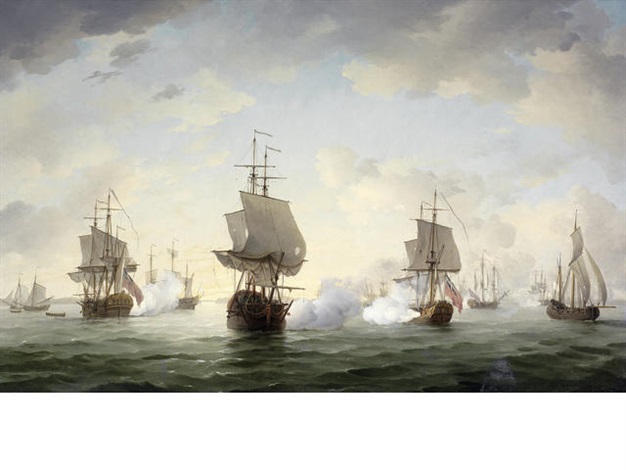


Instead, the new nation targeted Canada, hoping to use the conquest of British territory as a bargaining chip to win concessions on the maritime issues. Most Americans assumed that the conquest of Canada would be, in the words of former president Thomas Jefferson, “a mere matter of marching.” The United States enjoyed a huge population advantage over Canada-7.7 million to 500,000-and it was widely believed in America that U.S. troops would be welcomed as liberators. But events did not play out as Americans expected. Waging war at the end of extended supply lines over the vast distances of the North American wilderness was no easy task. With only 16 warships, the United States could not directly challenge the Royal Navy, which had 500 ships in service in 1812. Some of the impressed sailors were born in British possessions but had migrated to the United States, while many others had attained citizenship that was either in question or simply could not be documented. Press gangs, though ostensibly targeting British subjects for naval service, also swept up 6,000 to 9,000 Americans into the crews of British ships between 1803 and 1812. In Britain’s effort to control the world’s oceans, the British Royal Navy encroached upon American maritime rights and cut into American trade during the Napoleonic Wars. In response, the young republic declared war on Britain on June 18, 1812. The two leading causes of the war were the British Orders-in-Council, which limited American trade with Europe, and impressment, the Royal Navy’s practice of taking seamen from American merchant vessels to fill out the crews of its own chronically undermanned warships. Under the authority of the Orders in Council, the British seized some 400 American merchant ships and their cargoes between 18. The conflict was a byproduct of the broader conflict between Great Britain and France over who would dominate Europe and the wider world. The War of 1812 pitted the young United States in a war against Great Britain, from whom the American colonies had won their independence in 1783.


 0 kommentar(er)
0 kommentar(er)
